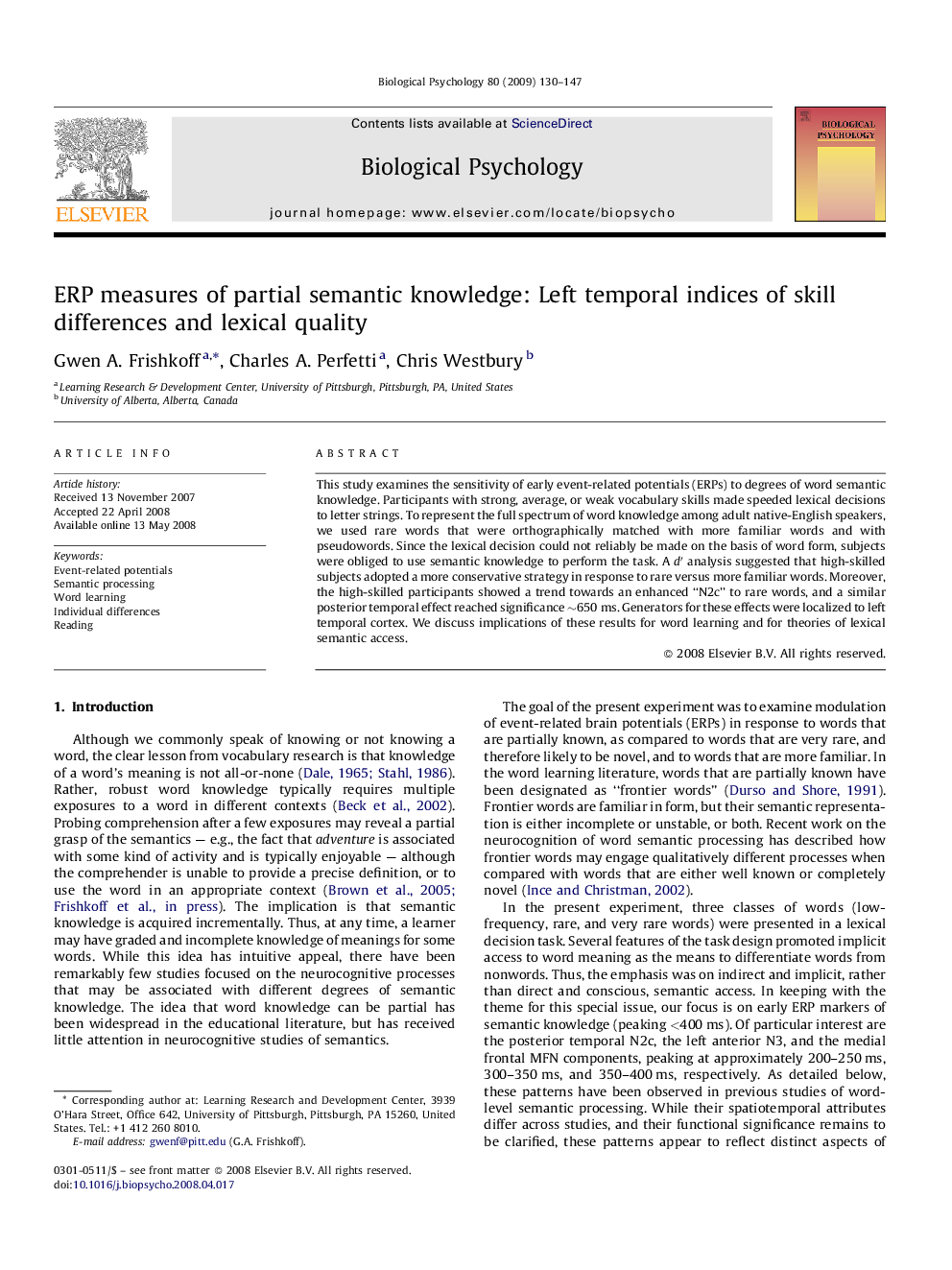| Article ID | Journal | Published Year | Pages | File Type |
|---|---|---|---|---|
| 921534 | Biological Psychology | 2009 | 18 Pages |
This study examines the sensitivity of early event-related potentials (ERPs) to degrees of word semantic knowledge. Participants with strong, average, or weak vocabulary skills made speeded lexical decisions to letter strings. To represent the full spectrum of word knowledge among adult native-English speakers, we used rare words that were orthographically matched with more familiar words and with pseudowords. Since the lexical decision could not reliably be made on the basis of word form, subjects were obliged to use semantic knowledge to perform the task. A d′ analysis suggested that high-skilled subjects adopted a more conservative strategy in response to rare versus more familiar words. Moreover, the high-skilled participants showed a trend towards an enhanced “N2c” to rare words, and a similar posterior temporal effect reached significance ∼650 ms. Generators for these effects were localized to left temporal cortex. We discuss implications of these results for word learning and for theories of lexical semantic access.
